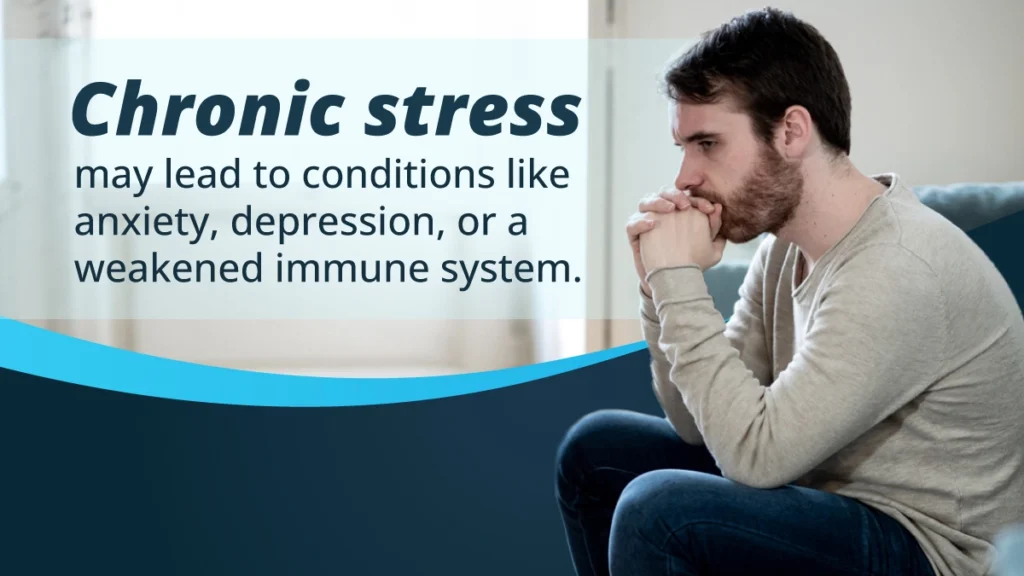How Stress Negatively Impacts Mental Health?
Stress has become an unavoidable aspect of daily life, affecting individuals across all demographics. While it can serve as a natural response to challenging situations, prolonged or excessive stress can exact a toll on mental health.
From heightened anxiety and depression to impaired cognitive function, the negative consequences of stress can manifest in various forms. This article provides insights into the harmful effects of stress on mental health. It offers practical strategies for managing stress effectively and cultivating resilience.
Key Takeaways
Prolonged stress often ends up transforming into mental disorders. Here is what you will learn:
- Chronic stress can exacerbate mental health conditions like anxiety and depression.
- Stress management includes mindfulness and lifestyle changes for relaxation and resilience.
- Seeking professional help is vital for managing stress and maintaining mental well-being.
The Haven Detox-New Jersey offers specialized support for mental illnesses. For assistance, call us at (856) 626-5755.

Brief Overview Of Stress
Stress is a natural reaction when the body responds to pressures, challenges, or changes. These stressors can be physical, such as injury or illness, or psychological, like deadlines or relationship conflicts. When faced with stress, the body releases hormones like adrenaline, which prepare it for action.
Short-term stress, known as acute stress, can be helpful in certain situations. It can sharpen focus, boost energy, and improve performance. However, when stress becomes prolonged or chronic, it can harm mental and physical health.
Chronic stress may lead to conditions like anxiety, depression, or a weakened immune system. To manage stress effectively, it’s essential to identify triggers, practice relaxation techniques, maintain a healthy lifestyle, and seek support when needed. Individuals can improve their well-being and quality of life by taking proactive steps to cope with stress.
Connection Between Stress And Mental Health
Stress and mental health are closely linked. When stress hormones surge, a person’s mental health can be affected. These stress responses can impact people in both short-term and long-term ways. In stressful situations, things can become overwhelming, affecting their mental health.
When stress hits, your body’s response can be intense. This can develop various physical symptoms like muscle tension, high blood pressure, and weight gain due to increased cortisol levels. Your nervous system goes into overdrive, affecting heart rate and blood pressure. Regular physical activities and stress management techniques can help alleviate these effects.
Furthermore, chronic stress can disrupt the body’s immune system, making individuals more vulnerable to infections and illnesses. Prolonged activation of the stress response can also result in the development of chronic conditions such as cardiovascular disease and gastrointestinal disorders. Thus, addressing stress’s long-term implications on overall health and well-being is essential.
Stress isn’t just about physical symptoms; it can also wreak havoc on your mind. Anxiety disorders may develop or worsen under prolonged stress, affecting your feelings and overall mental health. The constant strain on mental resources can deplete resilience and coping mechanisms, making individuals more vulnerable to emotional distress.
Moreover, chronic stress can impair cognitive function, affecting memory, concentration, and decision-making abilities. Learning to manage stress through techniques like relaxation and seeking support from friends, family, or a healthcare provider can help mitigate these psychological impacts.
The Negative Effects Of Stress On Mental Health
Stress can have significant adverse effects on mental health, impacting various aspects of a person’s well-being. It’s essential to recognize the signs of stress and prioritize self-care and stress management strategies to mitigate its negative effects on mental health.
Long-term stress can exacerbate anxiety, a common mental health condition signified by excessive worry and fear. Studies show that chronic stress can result in heightened anxiety symptoms, impacting daily life and overall well-being. Seeking professional help is paramount in managing anxiety and learning healthy ways to cope, such as adopting relaxation techniques or engaging in physical exercise.
Prolonged stress often contributes to depression, a mental illness marked by persistent sadness and loss of interest in activities. Family members may figure out changes in mood or behavior, indicating possible depression. Therapy, medication, and lifestyle changes are examples of effective treatments for depression.
Furthermore, chronic stress can disrupt the body’s immune system, making individuals more vulnerable to infections and illnesses. Prolonged activation of the stress response can also result in the development of chronic conditions such as cardiovascular disease and gastrointestinal disorders. Thus, addressing stress’s long-term implications on overall health and well-being is essential.
Experiencing trauma can trigger PTSD, a mental health condition characterized by intrusive memories, flashbacks, and heightened anxiety. Long-term stress can exacerbate symptoms, impacting daily functioning and relationships. Learning healthy coping mechanisms and practicing self-care are vital for managing symptoms.
Stress can worsen symptoms of Attention Deficit Hyperactivity Disorder (ADHD), a neurodevelopmental disorder characterized by difficulty concentrating, impulsivity, and hyperactivity. Studies suggest that stress can worsen ADHD symptoms, making it challenging to focus and complete tasks. Incorporating healthy habits, like regular exercise and stress-reduction techniques, can be beneficial.
Role Of Stress Management In Mental Health
Stress management plays a vital role in maintaining mental health, particularly in addressing symptoms of stress that can worsen mental health conditions. When individuals experience stress triggers in their everyday lives, such as work pressure or personal challenges, it can lead to mental health problems like anxiety or depression.
Stress management techniques encompass mindfulness practices, physical activity, healthy lifestyle habits, effective time management, social support networks, and engaging in fulfilling activities. By incorporating these strategies into everyday life, individuals can mitigate the effects of stress, promote relaxation, build resilience, and enhance overall well-being.
Women, in particular, may experience unique stressors and health issues, highlighting the importance of tailored information and support for different demographics. It’s essential to prioritize mental health by seeking support from a healthcare provider or accessing resources from organizations like the CDC for reliable health information.
Frequently Asked Questions (FAQs)
Experiencing too much stress can have detrimental effects on your mind and body. Stress triggers the release of hormones like cortisol, impacting your mental health. It can lead to mild stress, turning into more severe mental disorders.
Research links chronic stress to cardiovascular disease, as it elevates cholesterol levels and increases the risk of medical problems. Muscles may tense up, contributing to physical discomfort. Even a little bit of stress each day can accumulate, posing a danger to mental well-being. Overall, many people experience mental health issues when subjected to prolonged stress, highlighting the importance of stress management for a healthier life.
Stress, whether mild or severe, can wreak havoc on overall well-being. It manifests in various forms, such as headaches, chest pain, and depressive symptoms. The body’s flight response, triggered by stress, can strain the circulatory system, potentially leading to cardiovascular diseases like heart disease.
Traumatic events, natural disasters, or even the pressures of everyday life can activate the adrenal glands, releasing hormones that affect mental health. While some stress is considered good stress, chronic stress can result in stress-related disorders, impacting different people differently. Seeking support from mental health care providers is crucial for managing stress and preventing its detrimental effects on overall health.
While experiencing stress is a normal part of life, when the level of stress becomes chronic or overwhelming, it can lead to various mental health issues. Numerous factors, such as the amount of stress, the ongoing increase in stress levels, and exposure to negative events, can contribute to this.
The constant activation of the body’s stress response can disrupt standard thought patterns and emotions, leading to anxiety, depression, or other mental health disorders. Seeking helpful information and mental health services can assist in managing stress and preventing long-term negative impacts on mental well-being.

